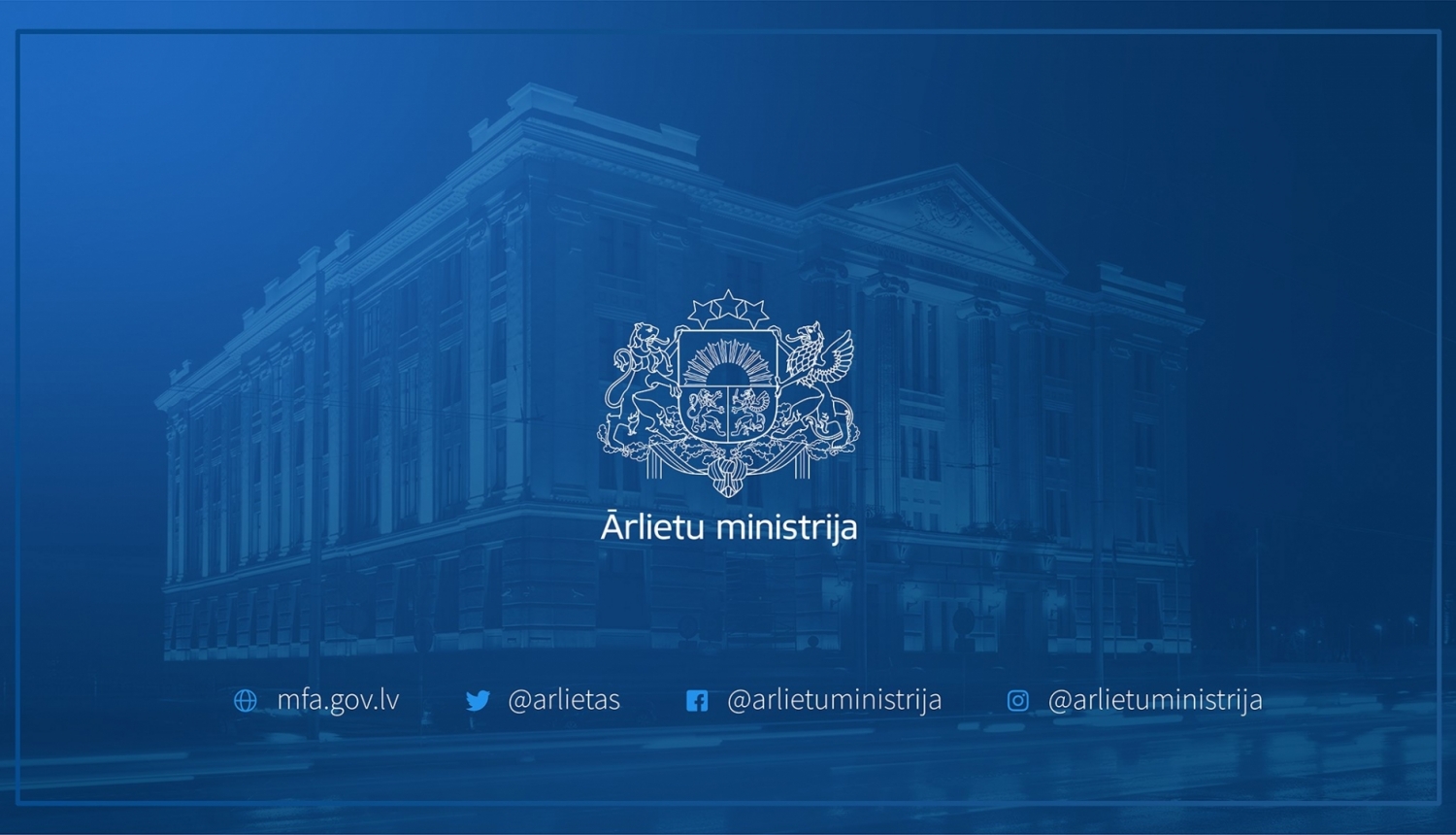On 21 June 2022, the Parliamentary Secretary of the Ministry of Foreign Affairs, Zanda Kalniņa-Lukaševica, delivered an address at the Second Parliamentary Forum of the Three Seas Initiative, “Digital transformation, interoperability of infrastructure, energy dependence and security”, which brought together members of parliaments from the initiative’s twelve member states as well as partner countries.
In her remarks to the participants, the Parliamentary Secretary underlined in particular the importance of the geopolitical situation for the region’s common security. “Russia’s immoral and insane aggression on Ukraine has brought about a tragedy and horrendous human suffering. We are doing everything it takes to help Ukraine to withstand this unjust attack and to win the war. The whole democratic world has mobilised to thwart Russia’s aggression,” Zanda Kalniņa-Lukaševica said, underlining that “it is more important than ever that our actions be guided by our shared values.”
Zanda Kalniņa-Lukaševica also drew the attention of those present to the following considerations: “First of all, we have to think about the role and place Ukraine will play in Europe after the war is over. Latvia strongly supports Ukraine’s European perspective and is certain about its place in the European family. Second, it is important that Ukraine be rebuilt. Jointly and in close co-ordination, EU Member States need to contribute to Ukraine’s reconstruction. Ukraine will be rebuilt not only materially – the reform process started before the war will be accelerated as well. Third, it is crucial for all of us that Russia be unable to wage another war of aggression.”
Russia has to be held legally and financially accountable for the atrocities and destruction in Ukraine. In addition, the current geopolitical situation and the geographical location of our region demands us to be more decisive than ever. We have to continue strengthening our defence and resilience – physical, digital as well as emotional. “We must get more confident that the knowledge and experience we have in our region is very valuable. We have to share it among ourselves and especially with the rest of the world,” Zanda Kalniņa-Lukaševica underlined.
The Parliamentary Secretary stressed that Russia’s aggression against Ukraine and its consequences demonstrate once again the importance of energy security and integrated infrastructure. The diversification of energy supplies and the development of our own locally produced energy are at the centre of our short and mid-term actions.
Zanda Kalniņa-Lukaševica said she was glad about the increasing interest in the initiative and about a large number of participants gathered by the Parliamentary Forum and the concurrent Business Forum: “It is essential that investors find our region a safe and attractive place to invest and feel confidence in the legislative framework.” If we want to boost investments and make big projects happen, our task is to make the right policy decisions and make our economies resilient and fit for the future, the Parliamentary Secretary underlined.
The Parliamentary Secretary highlighted another important dimension of the initiative – the Civil Society Forum that took place in Riga on 21 May. The event aimed at promoting the exchange of views among civil society, and its recommendations have been included in a report published today.
The Parliamentary Secretary thanked the Chair of the Foreign Affairs Comitee of the Saeima, Rihards Kols, for taking the initiative to organize the parliamentarian dimension of the initiative. The forum is of utmost importance in terms of contributing to discussions on the development and harmonization of legislative framework for improvements to regional connectivity, Zanda Kalniņa-Lukaševica noted.
At the opening of the forum, remarks were also delivered by the Speaker of the Saeima, Ināra Mūrniece, and by the guest of honour to the forum, Deputy Chair of the Verkhovna Rada of Ukraine, Olena Kondratiuk.
The forum is comprised of three sessions addressing digital transformation, interoperability of the region’s infrastructure, energy dependence, security, and the geopolitical importance of the initiative, especially today, as Russia’s aggression against Ukraine continues.




